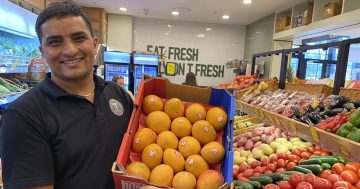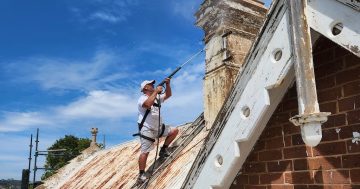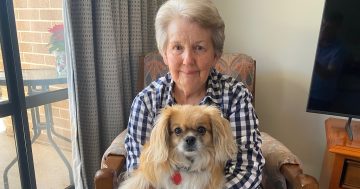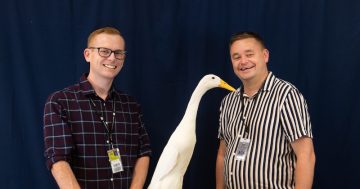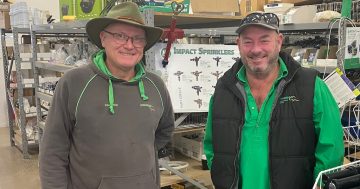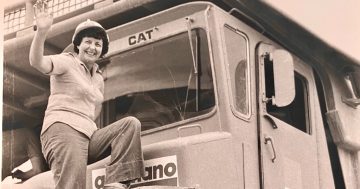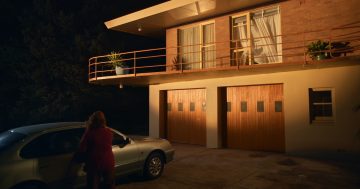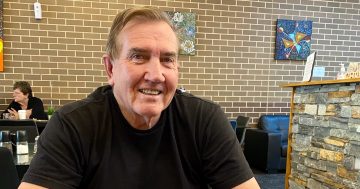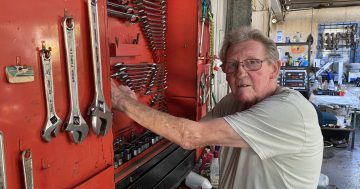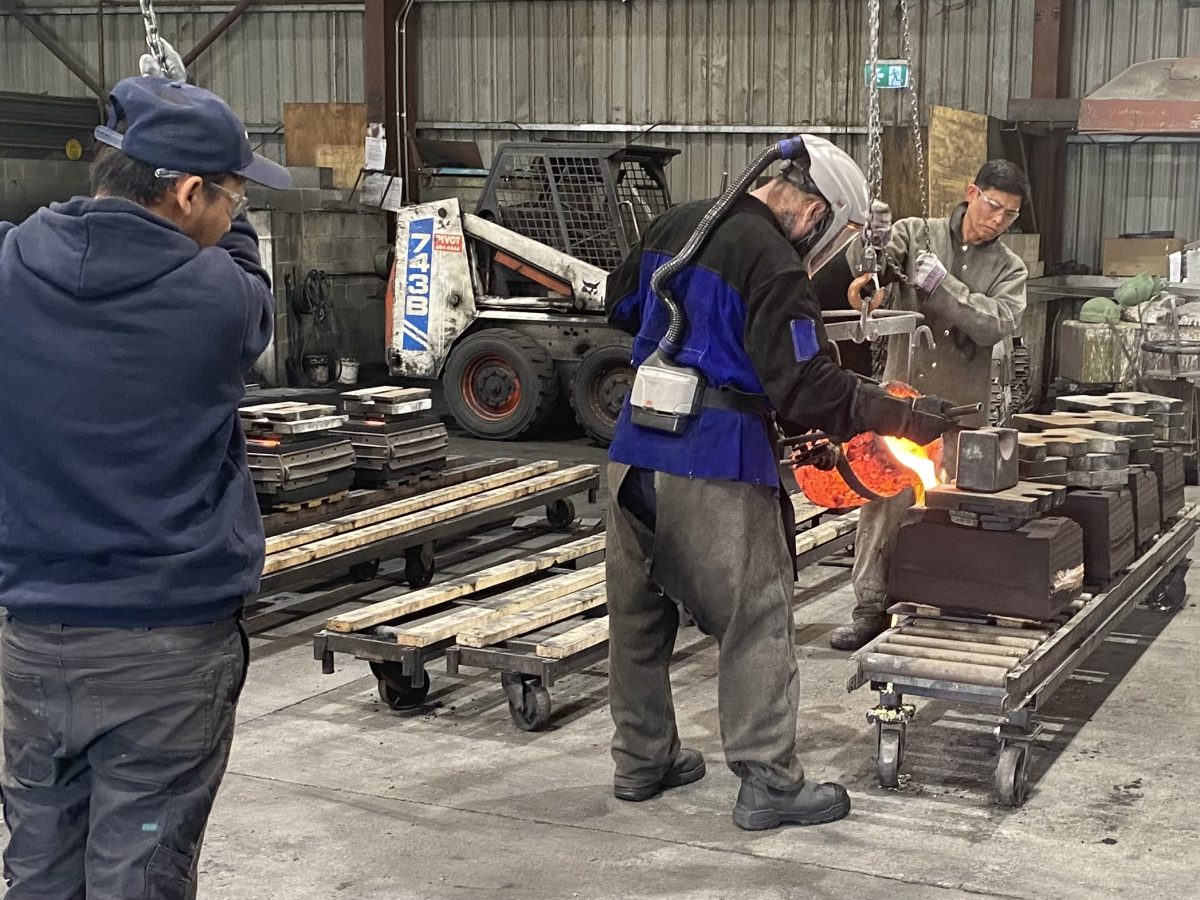
Pouring silicon bronze heated to 1150 degrees Celsius into moulds for designer lights at Camcast Foundry, Goulburn. Photo: John Thistleton.
Troy Rath likes to recount the first question his father was asked when he began his apprenticeship in a foundry in Sydney’s south.
“Do you like making sandcastles?” the owner of the foundry, who started it in his backyard in Kirrawee in 1950, asked Mark Rath. Loads of sand are poured into sand moulding before the actual metals are moulded into products and the new recruit would be making countless ‘castles’.
Just as well Mark did like building sandcastles. He became the foundry’s foreman and eventually bought the business.
He slogged out some tough years at Camcast foundry, was unable to replicate the financial success of its founder, but was unwilling to surrender his hard-won business.
Close to his father, Troy nevertheless left home to became a commercial helicopter pilot working in the mining industry at Mount Isa, before returning and rejoining Mark to help the struggling foundry.
Exhausted, they went to their main customers in the petroleum industry and said they needed to charge more realistic prices for their specialised products otherwise they would go broke. The customers readily agreed and it was a turning point, as Camcast became viable once more.
Two years ago Mark and Troy asked themselves an even harder question – did they believe in castles in the sky? In their case, that elusive castle was an unrealistic expectation that they could pick up the business and relocate it to Goulburn.
They had to maintain production and continue filling orders while making the move, while supporting two mortgages, one in Sydney and one in Goulburn.
“At one point we had to pull the pin in Sydney and just go for it in Goulburn,” Troy said. “It was like I was digging a hole to China and the only one holding the shovel,” he said.
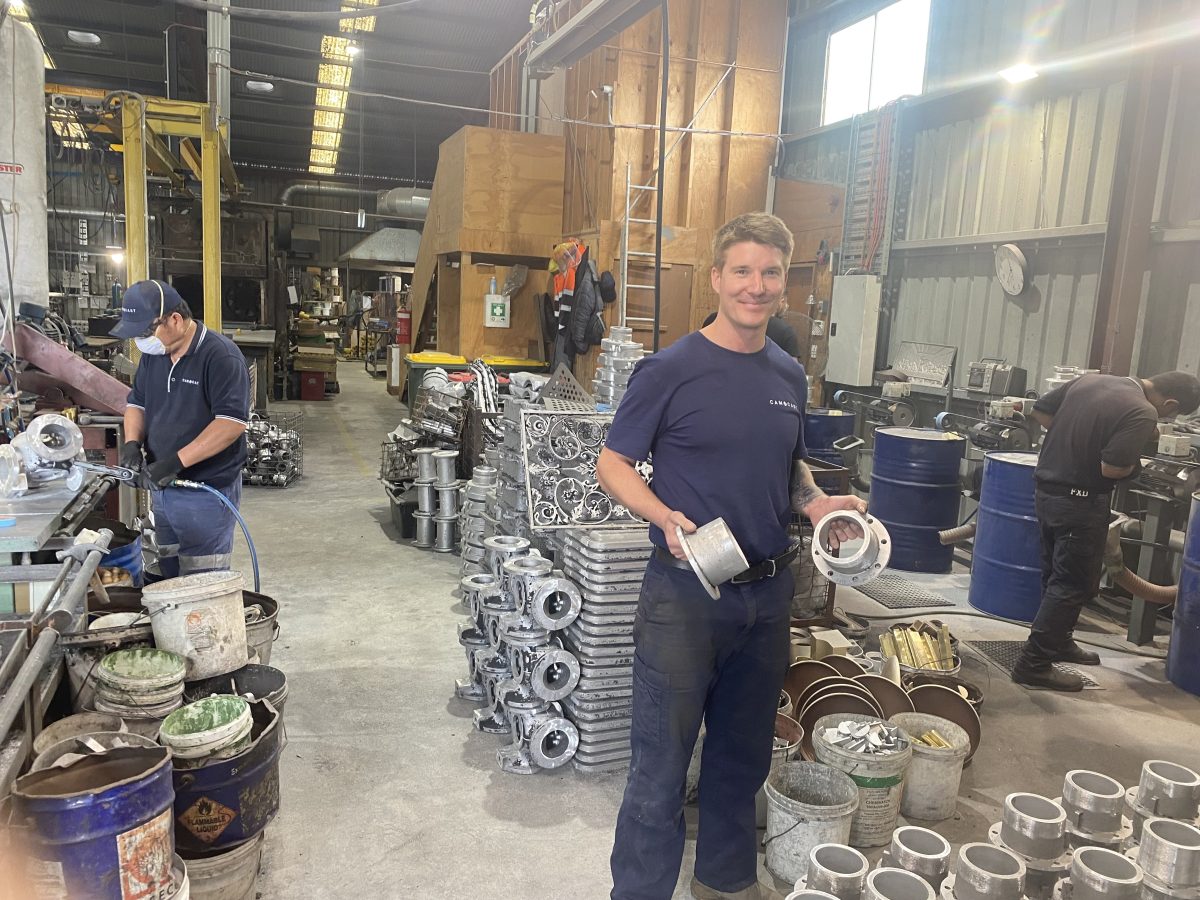
Troy Rath with some of the metal products made at Camcast Foundry in Goulburn. The niche manufacturer has made everything from fuel hose couplings and electrical components to V8 car manifolds and an engine head for an early Triumph motorcycle. Photo: John Thistleton.
Loading up bags of used sand in Goulburn he hauled them back to Sydney to go through a sand recycling machine. Working seven days a week, it was a ‘do-or-die’ effort, loading tonnes of sand, copper and other ingots onto trailers to haul to and from Goulburn, keeping up with production and recruiting and training staff.
Drawn by the cheaper land in Goulburn, the Raths bought the former Yurt factory site on Copford Road, Bradfordville, a 3500-sqm block with a large manufacturing shed and office. They have since expanded the shed.
‘‘Initially I thought the site was too big; now we are growing and it’s looking as if it won’t be big enough,” Troy said.
Mark has since stepped back and allowed Troy to take over as director. He is staying on as a consultant and Troy is buying the business from him.
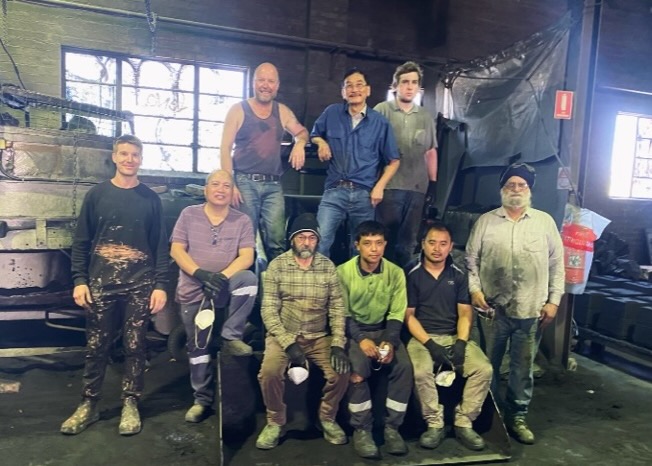
Taken in 2022, Camcast staff at Kirrawee before the business was relocated to Goulburn. Troy Rath is at left. His father Mark is standing at left in the back row. Photo: Camcast.
At 33, Troy says he is the youngest director of only a handful of non-ferrous foundries in the country. He is still making his castles in the sky – he dreams of Australia manufacturing coming full circle and returning to a nation that makes things.
A niche manufacturer, Troy says he does not want to be Australia’s biggest foundry, but it’s most efficient. The staff of 13 continue turning out couplings and fittings for the petroleum industry, components for the electricity industry and a huge range of assorted products.
These include one-off lights for a designer of high-end furniture and hardware for hotels in France, brass grates for drains for Barangaroo, Sydney, and homewares for the Californian home of recording artist Robyn Rihanna Fenty.
“We use a lot of copper, silicon bronze, brass and a little bit of lead, but not too much,” Troy said.
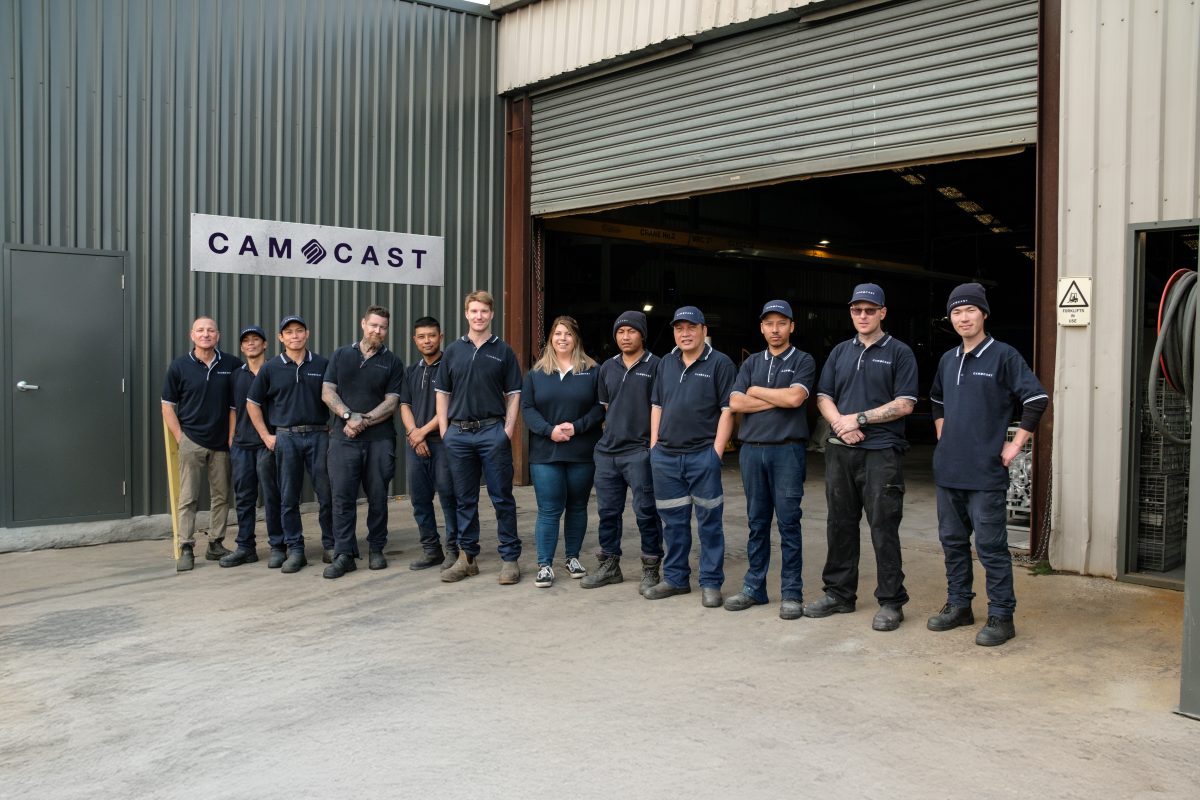
Camcast staff in Goulburn, with director Troy Rath in the centre. Photo: Camcast.
Working in a foundry isn’t for everyone. It’s dirty, noisy and potentially dangerous.
He took up a friend’s suggestion to employ role-model prisoners (alongside his staff) on day-release programs who would qualify for work release. “All I wanted was a worker, someone who would turn up every day,” Troy said. “We all work as a team, no one is better than anyone else. I wouldn’t ask anyone to do anything I wouldn’t do myself. And I think that works.”
He has received feedback that going to work, getting paid and earning a work record in preparation for their release has had a profoundly positive impact on the inmates’ outlook, social skills and hopes for the future. Perhaps they are building their own castles in the sky from a foundry moulding more than metals.







